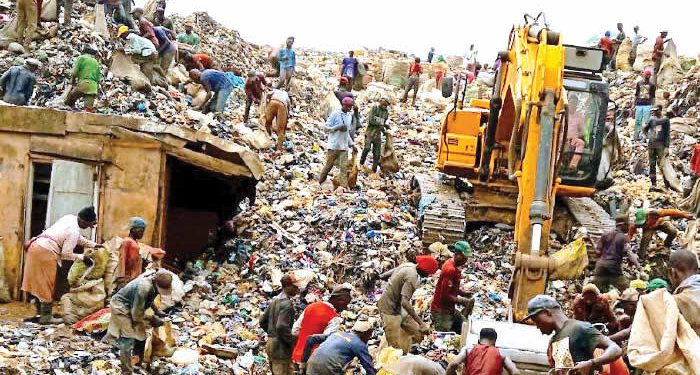The Lagos State Government is set to establish waste-to-energy plants at strategic locations, aiming to enhance waste management and generate sustainable energy. As part of this initiative, major dumpsites, including the Olusosun landfill in Ojota, will be shut down to make way for energy-producing facilities.
Dr. Muyiwa Gbadegesin, Managing Director and CEO of the Lagos Waste Management Authority (LAWMA), confirmed the development in an interview on Monday. He stated that the government is building a materials recovery facility in Ikorodu, with construction expected to last about 15 months. Waste will be diverted to a recovery center in Badagry, where biogas will be extracted to generate electricity.
For Olusosun, Gbadegesin revealed plans to collaborate with nearby industrial facilities, allowing them to utilize the gas for power generation. He emphasized that private investors would drive the waste-to-energy projects, with feasibility studies completed last year in partnership with the Swedish Government. Sweden’s successful zero-waste model, which converts organic waste into biomethane, is being used as a reference for Lagos.
With Lagos generating 13,000 tonnes of waste daily—half of which is organic—Gbadegesin stressed the importance of converting waste into compost for agriculture and biomethane for energy. The Lagos State Metropolitan Area Transport Authority (LAMATA) is also involved, ensuring the biogas facility supports 2,000 upcoming compressed natural gas-powered buses.
LAWMA has additionally partnered with Dutch company Harvest Waste to set up a waste-to-energy plant in Epe, following the closure of the landfill there. The Dutch firm is providing €100 million in funding for the project, which is expected to process 2,500 tonnes of waste daily and generate between 60 and 80 megawatts of electricity.
Gbadegesin described these initiatives as a significant step forward for Lagos, positioning the state as a leader in sustainable urban development.










